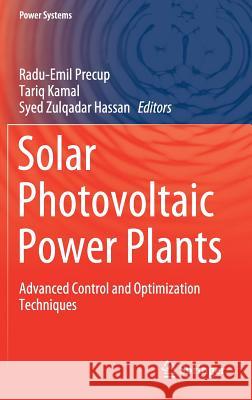Solar Photovoltaic Power Plants: Advanced Control and Optimization Techniques » książka
topmenu
Solar Photovoltaic Power Plants: Advanced Control and Optimization Techniques
ISBN-13: 9789811361500 / Angielski / Twarda / 2019 / 250 str.
Kategorie:
Kategorie BISAC:
Wydawca:
Springer
Seria wydawnicza:
Język:
Angielski
ISBN-13:
9789811361500
Rok wydania:
2019
Wydanie:
2019
Ilość stron:
250
Waga:
0.55 kg
Wymiary:
23.39 x 15.6 x 1.6
Oprawa:
Twarda
Wolumenów:
01
Dodatkowe informacje:
Wydanie ilustrowane











